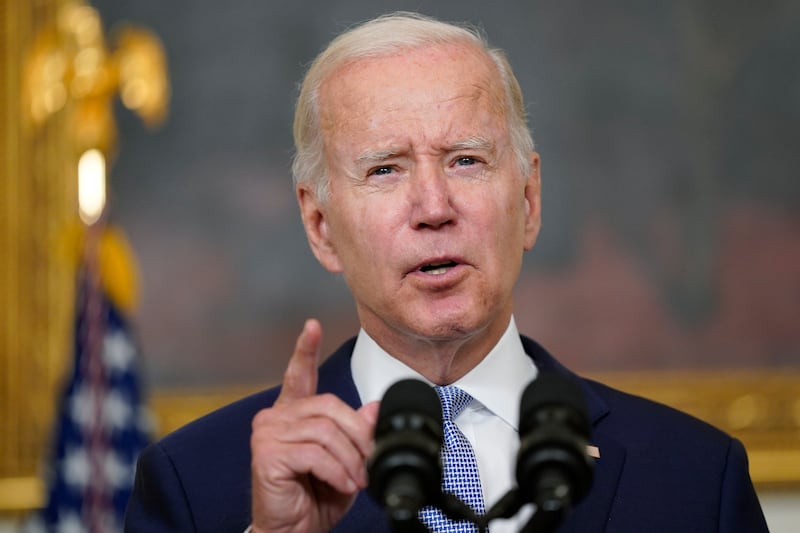The best way to tame inflation is to find ways that restore the balance of supply and demand, which at the moment is heavily skewed toward demand.
But the best way to win an election is to find the one thing that concerns voters most, then show them you are fixing it.
Democrats are currently pushing legislation that would do a lot of things — increase spending on energy and programs to counter climate change, allow Medicare to negotiate drug prices, impose a 15% corporate minimum tax and beef up the IRS so it can do a better job of catching tax cheats.
But party leaders have chosen to call it the Inflation Reduction Act.
That’s understandable, considering polls show voters are unhappy with an inflation rate that was at a 9.1% annual rate in June. An NBC News poll taken in May found 65% of Americans saying their income is not keeping up with inflation, while 40% believe the economy is the most important issue. Meanwhile, a Deseret News/Hinckley Institute of Politics poll in July found 85% of Utahns are either somewhat or very concerned about inflation.
Unfortunately, this is the most dubious claim one could make about this legislation. A study published last week by the University of Pennsylvania’s Wharton Budget Model concluded that the bill’s impact on inflation would be statistically insignificant.
The study said the bill “would very slightly increase inflation until 2024 and decrease inflation thereafter,” but then added with a shrug, “These point estimates are statistically indistinguishable from zero. …”
As with all bills that contain a mix of tax hikes and spending increases, ideologues have a field day talking about fairness vs. unintended consequences. Most Democrats emphasize that the corporate minimum tax would force large corporations that currently avoid all income taxes to finally pay their fair share. Republicans tend to argue that any tax on corporations will trickle down to everyday consumers in the form of higher prices, making it a de facto tax on the middle class.
Republicans similarly decry the extra spending on climate change programs as a further drain on taxpayers. Liberals counter that consumers would save money on their utility bills while alleviating obvious climate change problems such as the prolonged drought in the U.S. West.
It’s hard to figure out the real consequences of such legislation until it is put into practice. Some policy decisions are worth the price. Climate change falls into that category. But Americans should be made to understand the main purposes of such an important bill, not led to believe it will cure inflation or cut the deficit.
The nonpartisan Congressional Budget Office just released its annual analysis of the nation’s long-term budget forecast. The news is not good. “The U.S. faces a challenging fiscal outlook …” it said, noting baseline projections “show budget deficits and federal debt held by the public growing steadily in relation to gross domestic product over the next three decades.”
What are the consequences of such behavior?
“Debt that is high and rising as a percentage of GDP could slow economic growth, push up interest payments to foreign holders of U.S. debt, heighten the risk of a fiscal crisis, elevate the likelihood of less abrupt adverse effects, make the U.S. fiscal position more vulnerable to an increase in interest rates, and cause lawmakers to feel more constrained in their policy choices,” the report said.
The Inflation Reduction Act claims it would reduce the deficit by slightly more than 1% of GDP over a decade. Perhaps it is a good start, but it’s not a serious effort given the CBO’s economic forecast.
Democrats have had trouble rallying support for the act from all party members in the Senate — an evenly divided body where every vote counts. Sen. Joe Manchin, D-W.Va., a pivotal swing vote, finally agreed to support it after long negotiations, saying, “This is all about fighting inflation.”
No doubt, that’s what Americans want to hear. The truth, however, is much more complicated.

